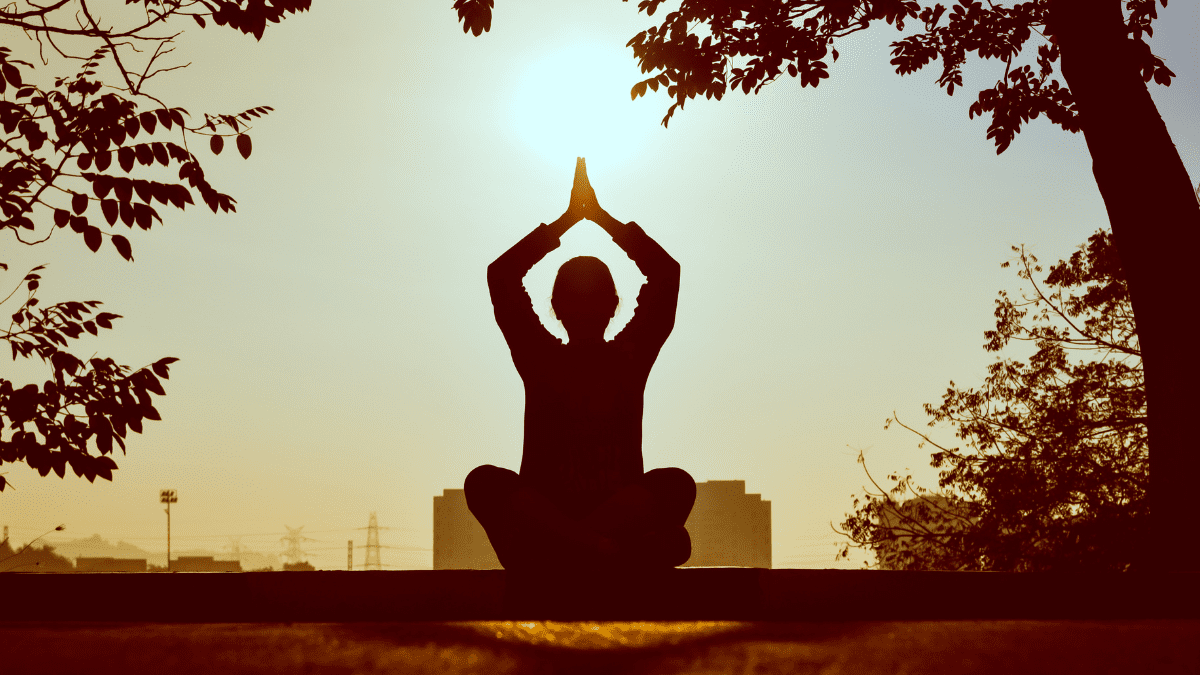Spiritual Mindset Power: Transform Your Life Now
Spiritual mindset power isn’t just a trend—it’s your key to deep peace, purpose, and emotional freedom. Awaken your inner strength and live a more conscious, radiant life.

In This Article
- What Does a Spiritual Mindset Really Mean?
- Why a Spiritual Mindset Empowers You at the Core
- How to Activate a Spiritual Mindset in Daily Life
- How a Spiritual Mindset Builds Emotional Strength
- Building Better Relationships with a Spiritual Mindset
- Anchoring Your Spiritual Mindset in a Distracted World
- Embracing a Spiritual Mindset for Lifelong Growth
- Spiritual Mindset — FAQ
What Does a Spiritual Mindset Really Mean?
In today’s fast-paced world, the need for a spiritual mindset is more urgent than ever. Many of us feel disconnected—rushing, scrolling, surviving—but not truly living. A spiritual mindset invites you to slow down, breathe deeply, and reconnect with what matters. It’s not about religion. It’s about awakening your inner clarity and creating a more conscious life.
Moreover, this mindset helps you rise above stress, anxiety, and superficial distractions. It brings depth where there was once emptiness. Most importantly, it empowers you to live from a place of truth, not fear.
In this guide, you’ll discover how to develop a spiritual mindset, why it transforms every part of your life, and how to integrate it into your daily reality. If you’re ready to go deeper, explore our guide on spiritual awakening and breaking free from the matrix.
Now, let’s explore the core questions behind this transformative path.
Why a Spiritual Mindset Empowers You at the Core
How does a spiritual mindset differ from positive thinking?
Many people confuse spiritual growth with simple optimism. However, a spiritual mindset goes much deeper. Positive thinking often pushes you to ignore pain. A spiritual approach invites you to face it. It helps you hold space for both light and shadow.
Instead of bypassing reality, you meet it with presence. You don’t pretend everything is fine. You accept what is—and grow through it. That’s why spiritual strength feels more grounded and lasting.
What values shape a spiritual mindset?
A spiritual mindset isn’t built in a day. It grows through conscious values. Self-awareness comes first. Without it, we act from habit, not intention. Presence is next. When you stay grounded in the now, everything shifts. Compassion follows. It opens your heart, not just to others, but also to yourself.
Gratitude also plays a powerful role. It trains your mind to see beauty, even in the small moments. Lastly, surrender helps you release control. You begin to trust life, even when it doesn’t make sense.
These values create a strong foundation. With time, they become your inner compass.
Why is spiritual connection rising now more than ever?
More people are seeking depth. In the chaos of modern life, something feels missing. Social media can’t fill that gap. Neither can external success. People are tired of shallow living.
That’s why many turn inward. They want something real. A spiritual mindset offers that. It reconnects you with what you’ve lost—your center. This shift isn’t random. It’s a global movement toward higher awareness.
Recent findings from Psychology Today confirm this trend. As stress rises, spiritual connection becomes a lifeline. It doesn’t just soothe you—it strengthens you.
So if you’re feeling called to something deeper, you’re not alone.

How to Activate a Spiritual Mindset in Daily Life
What small habits awaken a spiritual mindset?
Transformation doesn’t require a massive overhaul. It begins with simple, consistent habits. Start by taking five quiet minutes in the morning. Just breathe and be still. This sets the tone for the day.
Next, write down three things you’re grateful for. Gratitude rewires your thinking. It shifts your focus from lack to abundance. Also, spend time outside. Nature naturally grounds you and connects you with something greater.
These practices don’t demand hours. They only ask for intention. When done daily, they gently rewire your mindset from reactive to reflective.
Can mindfulness open the door to spiritual growth?
Absolutely. Mindfulness is often the entry point to deeper awareness. It teaches you to notice, not judge. You learn to observe your thoughts, not believe every one.
When you’re mindful, you’re no longer on autopilot. You’re present. And when you’re present, your spirit has room to speak. It’s in that stillness where the spiritual mindset begins to unfold.
In fact, mindfulness trains the brain to stay calm. Over time, this cultivates inner peace. It becomes easier to respond instead of react. That alone transforms your relationship with life.
How do you create rituals that strengthen your spirit?
Rituals make the invisible feel real. They turn abstract ideas into embodied experiences. One powerful ritual is intention-setting. Each morning, ask: How do I want to show up today? This invites awareness into every action.
Another is journaling. Use it to explore emotions, patterns, and breakthroughs. Also, try candlelight meditations in the evening. The soft glow quiets the mind and opens the heart.
Spiritual rituals don’t need to look mystical. They only need to be meaningful. Even sipping tea in silence can become sacred—if you do it with presence.
How a Spiritual Mindset Builds Emotional Strength
Can a spiritual mindset help you stay calm in crisis?
Yes—and profoundly so. When chaos strikes, most people react from fear. But a spiritual mindset teaches a different path. Instead of panic, it offers presence. You pause, breathe, and center yourself.
This response doesn’t come from denial. It comes from trust. Trust in something deeper than circumstances. When you live from that place, fear loses its grip.
In fact, studies show that spiritual people often experience less emotional volatility. They are not immune to stress—but they’re more resilient in the face of it.
What does it really mean to let go?
Letting go is often misunderstood. It doesn’t mean giving up. Instead, it means releasing the illusion of control. A spiritual mindset invites you to surrender what you cannot force.
You stop clinging to how things should be. Instead, you accept what is. This doesn’t weaken you—it frees you. You still act, but from clarity, not desperation.
Through surrender, energy shifts. You stop wasting it on resistance. That space becomes a container for peace.
Does a spiritual mindset protect you from burnout?
Burnout often comes from disconnection. You chase results but ignore your soul. A spiritual mindset flips that script. It centers your energy around purpose.
You begin to ask deeper questions. Why am I doing this? Does this align with who I am? When you live by these questions, burnout fades. You work from inspiration, not obligation.
This mindset also helps you set better boundaries. You no longer say yes from guilt. You say yes from alignment. And when your choices match your values, inner peace grows stronger.
As highlighted by recent insights from Healthline, spiritual grounding helps regulate emotional overwhelm. It reconnects you to your “why”—even during hard times.
Building Better Relationships with a Spiritual Mindset
Can spiritual awareness improve how you connect with others?
Absolutely. When you cultivate spiritual awareness, your relationships transform. You stop reacting from ego and begin responding with empathy. Suddenly, you’re not just hearing people—you’re listening.
You also become more present. No longer stuck in your thoughts, you show up fully. That energy alone creates safety and trust in your connections.
Moreover, a spiritual mindset helps you see others as mirrors. You understand their pain instead of taking it personally. This shift builds real intimacy—not just surface-level bonding.
How does a spiritual mindset change your approach to conflict?
Conflict is inevitable. But how you navigate it is a choice. A spiritual mindset teaches you to respond, not retaliate. You pause before speaking. You choose compassion, even when you’re hurt.
This doesn’t mean avoiding boundaries. It means expressing them consciously. You learn to speak your truth without attack.
Also, forgiveness becomes easier. Not because you excuse harmful behavior, but because you value peace more than pride. This alone can save relationships from falling apart.
As explored by the Greater Good Science Center, spirituality often increases emotional intelligence and relational maturity. You’re not just reacting—you’re evolving.
What does love look like through a spiritual lens?
Love, in this mindset, is not possession. It’s presence. It is not about fixing or saving someone. It’s about seeing them clearly and supporting their journey.
You stop demanding validation. Instead, you offer freedom. Spiritual love is generous. It holds space without control. That kind of love changes everything.
In romantic or platonic connections, this shift is powerful. It brings peace where drama used to live. It creates stability, even in uncertainty.
When you embody this energy, your relationships soften. They become rooted in soul, not survival.

Anchoring Your Spiritual Mindset in a Distracted World
How do you stay grounded in chaos?
Distractions are everywhere. Notifications buzz. News floods in. Expectations pull you in every direction. So how can you stay centered?
A spiritual mindset gives you an anchor. It helps you pause, even when the world speeds up. Start by creating daily quiet moments. Just ten minutes can shift your entire day.
Breathe deeply. Notice your body. Connect with your inner stillness. These small resets matter. They clear mental noise and bring you back to what’s real.
Boundaries also help. Say no to what drains your peace. Choose what nourishes your spirit instead.
What does spiritual alignment look like in daily decisions?
Alignment means living by your values. You make choices that reflect your inner truth. It’s not always easy, but it’s freeing.
With a spiritual mindset, you ask deeper questions. Does this choice feel expansive or heavy? Am I acting from fear or love?
Over time, these questions guide you. You begin to trust your intuition more than external pressure. That trust becomes your compass.
Even in ordinary moments—shopping, eating, working—you choose with awareness. That is spiritual alignment in action.
Can your career reflect a spiritual mindset?
Yes, your work can become part of your path. You don’t need to quit your job or start over. Instead, you bring intention to what you already do.
Start by noticing how your work affects others. Are you contributing with purpose? Are you aligned with integrity?
A spiritual mindset invites authenticity. You no longer chase empty success. Seek impact, fulfillment, and flow.
You also lead differently. Instead of control, you practice conscious leadership. You listen more. You inspire rather than demand.
This approach builds meaningful success. And it allows your career to become a reflection of your soul’s values.
As shared by Verywell Mind, even small shifts in mindset can reduce stress and increase job satisfaction when spiritual values are present.
Embracing a Spiritual Mindset for Lifelong Growth
Choosing a spiritual mindset is not just a momentary shift. It’s a lifelong journey. One that begins with intention—and grows through consistent action.
At first, it might feel unfamiliar. However, with practice, it becomes a powerful guide. Each mindful breath, each act of compassion, brings you closer to your true self.
More importantly, this mindset transforms how you live. You stop chasing, and start aligning. You stop reacting, and start responding. Slowly, you feel more grounded. And over time, more at peace.
Even in times of struggle, your spiritual foundation holds you steady. It reminds you to trust the process, to let go, and to move with grace.
Moreover, a spiritual mindset deepens your relationships. You begin to love more openly, you listen more fully. You lead from a place of presence, not pressure.
No matter your background or beliefs, this path is open to you. There’s no perfect way to start—only the willingness to try.
So begin where you are. Choose one small practice. Then return to it each day. With time, that one step will become your steady path forward.
And remember—your inner transformation shapes your outer world. When you align your soul with your actions, life flows more effortlessly.
In the end, a spiritual mindset isn’t about becoming someone new. It’s about remembering who you’ve been all along.
You are ready. The journey is yours to claim.
Spiritual Mindset — FAQ
What is a spiritual mindset?
A spiritual mindset is an inner attitude focused on awareness, peace, and connection. It helps you live with intention, compassion, and deeper presence.
Is a spiritual mindset the same as being religious?
No, not at all. While it can include religion, a spiritual mindset is more about personal growth, meaning, and inner connection—regardless of belief systems.
How can I develop a spiritual mindset?
Start small. Practice daily mindfulness, gratitude, and reflection. Over time, these habits reshape your thinking and strengthen your spiritual awareness.
Why is a spiritual mindset important?
It helps you stay grounded during stress, improves emotional resilience, and brings clarity. More importantly, it guides you to live in alignment with your values.







